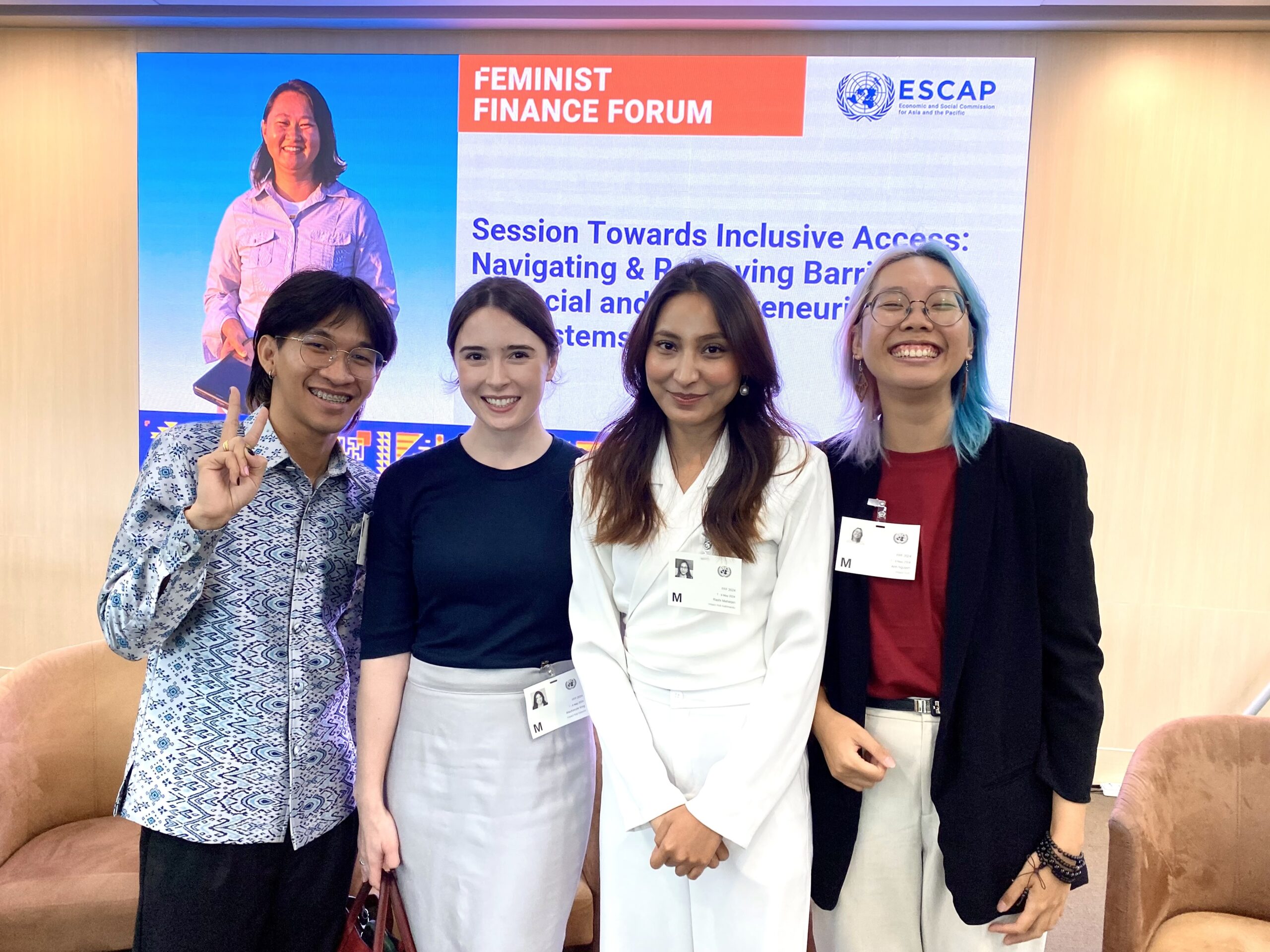By Rashi Maharjan
I am thrilled to share my experience at the Feminist Finance Forum (FFF) organized by the United Nations ESCAP. The event was a treasure trove of insights, meaningful connections, and enlightening conversations with experts, policymakers, researchers, and entrepreneurs from around the globe.
Impact Hub Kathmandu, in collaboration with Impact Hub Phnom Penh, and Impact Hub Bangladesh received an opportunity to host the session on “Navigating & Removing Barriers in Financial and Entrepreneurial Ecosystems for Women Entrepreneurs with Disabilities” following insights from our research on “Toward Inclusive Access: Navigating Gender and Disability Barriers in Entrepreneurship Support and Financing” that we had conducted in collaboration with United Nations Economic and Social Commission for the Asia Pacific (UNESCAP).
Our session reported representatives from the government bodies in Sri Lanka, the Philippines, and Thailand. Their contributions, rooted in their experiences creating inclusive ecosystems in their respective countries, added immense value to our discussion.
Key Takeaways from Concurrent Sessions
The concurrent sessions were meticulously crafted, offering a wealth of knowledge for all participants. Here are a few highlights:
Financing the Care Economy – South-South Learning Exchange
As a policy researcher, the “Financing the Care Economy” session was particularly enlightening. Rosa Alonzo, Director of Analysis of Poverty, Inequality, and Democratic Culture @MinEconomiaRD, shared that investment in care is one of the best public policy decisions to foster economic growth and well-being. Her presentation demonstrated how she used research and data to persuade her colleagues to invest in care by presenting policy alternatives derived from hedging the best policy scenarios.
Using Finance to Address Gender-Based Violence
Engaging with the Criterion Institute’s session was a profound learning experience. Joy Anderson elucidated how finance can be a pivotal tool for organizations to address gender-based violence. The discussion highlighted the supply chain as a significant bottleneck in preventing gender-based violence. Simple strategies, like ensuring well-lit public spaces, can significantly reduce the possibility of such incidents. A powerful quote that resonated with many was, “#MeToo movement was rising not because there was more harassment taking place, but because women started being less tolerant of them.” Although I missed their workshop the next day, their resources were invaluable. Check out their tools for de-risking gender-based violence here.
Gratitude and Looking Forward
Participating in the Feminist Finance Forum has broadened my perspectives and enriched my understanding of the intersection between finance and social issues. The networks I built and the knowledge I gained will undoubtedly inform and inspire my future work.
Lastly, I also want to thank the dream team, PichMony Thay, Anh Nguyen from Impact Hub Phnom Penh, and MacKenzie King, Regional Partnerships and Coordination Lead—for their relentless efforts in bringing this research to life.

Let’s continue to work together to create more inclusive, equitable financial and entrepreneurial ecosystems. This research is a great initiative to start the conversation in our advocacy for women entrepreneurs with disabilities, but I see it just as the beginning of a long walk towards inclusivity in each and every corner of the society.